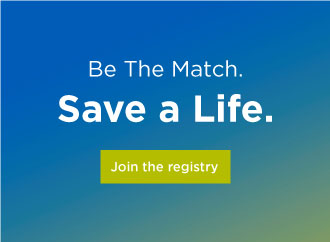Best friends Brad and Miranda joined the Be The Match Registry at different times and for different reasons. Brad signed up online after a friend posted on Facebook about a friend with leukemia. “I hadn’t heard about Be The Match before joining,” said Brad, “but it seemed really easy.” Miranda was at a campus blood drive when she was asked if she’d also like to sign up as a marrow donor. “I said, ‘sure, why not.’ There was no reason to say no.”
Neither of them could have guessed what a difference their decisions would make.
About two years later Miranda got the call asking if she’d donate to a man in his 70s–the same age as Miranda’s grandpa. And not long after, Brad got a similar call, asking if he would donate for a woman, also in her 70s.
“I took a couple days to really think about it,” said Miranda. “I was worried about falling behind in school, but I also felt like I was meant to take this opportunity. People can sit on the registry and never donate. And now I had a chance to cure someone, to give them more time with their family. It felt like fate.”
“I had really mixed feelings when I got the call,” said Brad. “I had a full-time internship, and worried about how it would all work out. I also thought about the pain of donating, but in the end it didn’t matter. When you donate you’re trying to stop death. Why wouldn’t you do it? It was stressful but also really exciting.”
Brad and Miranda both ended up donating peripheral blood stem cells (PBSC) within five days of each other, Miranda going first.
For four days leading up to her donation, Miranda received shots to increase the number of blood-forming cells in her body. “The shots were not very pleasant, but I reminded myself that the pain only lasted five seconds. And I took some pain reliever to stay on top of the side effects so I could make it through a full day of school. In the end, I never missed a class.”
On the day of her donation, Miranda settled in to binge watch “Arrow,” expecting the donation process to take the usual 6-8 hours. But just two-and-a-half hours later, she got a tap on her shoulder that she was done. The staff at the Apheresis center called her donation “spectacular.”
Brad’s donation also went quickly. “It was a strange sensation, but not negative. It was actually relaxing. The total time at the hospital was about 6 hours.”
“The donation was way easier than I expected it would be,” Miranda said. “I’d do it again in an instant if it meant I could save another life.” Brad agrees. “It was easy and everyone was very appreciative of what I was doing. Yeah, there was a little pain and it was a little stressful, but I would do it again. It was a great feeling.”
Brad and Miranda have both received updates that their recipients are out of the hospital and doing well.

